I have 5 tips to help you to get a licence from the FMA. There are 6 types of financial services businesses that need a “market services licence” to carry on business and there are a number of other licence types. See the FMA website for more information on who needs a licence. My tips reflect my previous experience working in the FMA team that helped to develop the relevant regulations & minimum standards and that assesses licence applications. My focus is on market services licences but my tips apply equally to other licence types.
The businesses that need a market services licence are crowd funding & P2P lending platforms, providers of discretionary investment management services (DIMS), derivatives issuers, managers of managed investment schemes & trustees of restricted investment schemes.
My 5 tips are:
- Commit to getting a licence: Getting a licence isn’t a “box ticking” exercise – it will require real effort and commitment from a team of people. That’s especially true for smaller businesses and new businesses, which may not have all the existing systems and processes necessary to operate a licensed business. And it’s critical that you commit to understanding the relevant law, much of which is new and which is complex in places.
- Accentuate the positive: Getting a licence takes significant time & resource and distracts you from your business. However, assessing your business for compliance with minimum standards and implementing solutions should benefit your business overall (in addition to the benefit of holding a licence), for example in the form of improved processes, governance and legal compliance.
- Small is beautiful: The FMA highlights that the licensing process supports small financial services businesses. Small businesses aren’t expected to have the complex systems and controls of larger businesses and not everything they do needs to be documented. So think about simple and/or innovative things that you, as a small business, can do to show that you meet minimum standards.
- Read the application guide thoroughly: The relevant FMA application guide sets out the requirements to obtain a licence and is the key document – you need to read it thoroughly and to do all the things it asks (but don’t forget the standard conditions). The FMA’s on-line application form does not directly ask for all the information the guide says you need to provide, so just completing the form won’t be enough. The form allows you to add additional documents – include the required information in those documents.
- Show me the money!: A common problem is applicants who confirm they meet minimum standards but fail to show how they do that. The FMA assessor won’t know much about your business so tell your “story” in full. For example, rather than simply saying that “staff will be appropriately trained” (a minimum standard) you could describe the type of training they will receive and when they will receive it, which might be evidenced by a training/CPD programme.
Cygnus Law can provide advice and guidance to help you to a get a licence and to comply with a licence. Cygnus Law can provide high level guidance at an early stage in the licensing process to help to ensure that you focus your resources effectively and efficiently.
Please note that this blog entry is a broad summary only, is not legal advice and should not be acted or relied upon without seeking legal advice.




